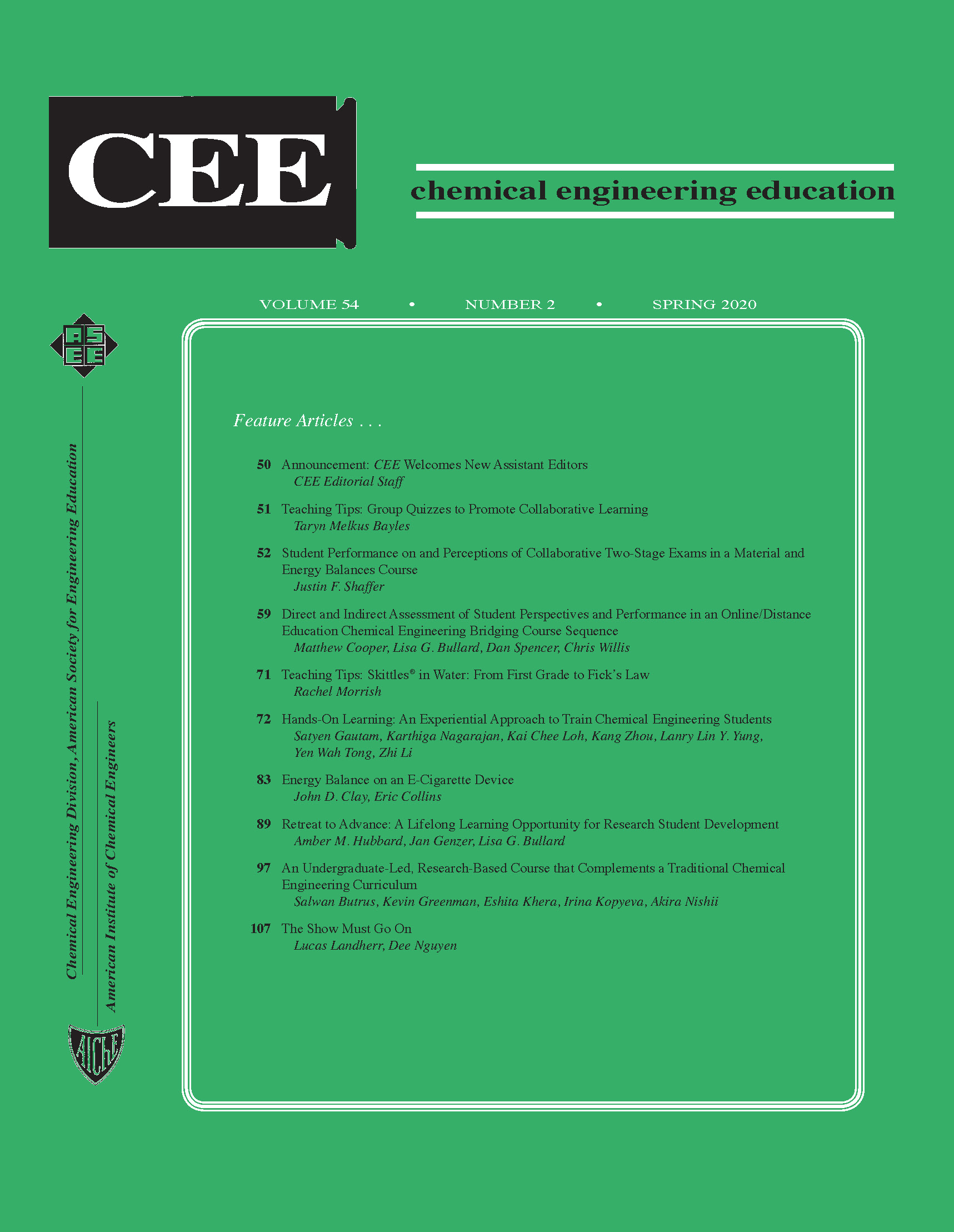An Undergraduate-Led, Research-Based Course that Complements a Traditional Chemical Engineering Curriculum
摘要
The interdisciplinary roots of chemical engineering have shaped its history and fostered its rapidly evolving nature. Through ongoing research, graduate students in chemical engineering departments remain abreast of the field’s evolution. Yet core undergraduate curricula often fall short of introducing students to the breadth of current research in the field, rendering undergraduates underprepared for elements of the modern discipline that research is currently defining. Herein, we discuss a strategy for supplementing chemical engineering curricula by introducing research topics and skills through an undergraduate-led course.


